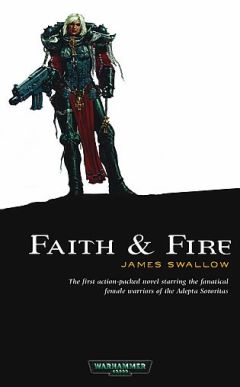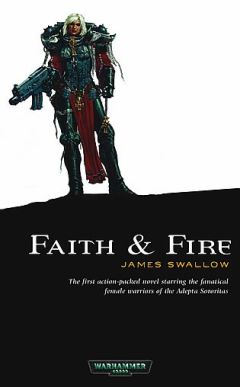Пользователь - WORLDS END
На электронном книжном портале my-library.info можно читать бесплатно книги онлайн без регистрации, в том числе Пользователь - WORLDS END. Жанр: Прочее издательство неизвестно, год 2004. В онлайн доступе вы получите полную версию книги с кратким содержанием для ознакомления, сможете читать аннотацию к книге (предисловие), увидеть рецензии тех, кто произведение уже прочитал и их экспертное мнение о прочитанном.
Кроме того, в библиотеке онлайн my-library.info вы найдете много новинок, которые заслуживают вашего внимания.

Пользователь - WORLDS END краткое содержание
WORLDS END читать онлайн бесплатно
Of course Beauty had to see her boy; and Robbie thought it would be a good thing if she left home for a while. He didn't take much stock in her efforts at rehabilitating broken Frenchmen; that was all right for women of a certain type, but not for Beauty, who was made for pleasure. Writing to Lanny, she protested that everything in Paris would be so dreadfully expensive; and Robbie answered in his usual way, by giving their son an extra check to send her. It was one of his ways of educating Lanny, helping him to realize how pleasant it was to have money, heigh-ho!
The mother was still clinging to the hope that she might hear some word about Marcel. She told herself that she could carry on her search better from Paris; if it brought no results, she could help to promote interest in his paintings, a labor of piety which intrigued heir mind. Lanny could assist her, now that he was meeting so many important and influential persons. In short, life once more began to stir in the bosom of Mabel Blackless, once Beauty Budd, and now Madame Detaze, veuve.
She ordered her trunks packed, and oversaw the job, exclaiming over the dowdiness of everything she owned; she hadn't bought a thing for years, and would simply have to do some shopping in Paris! Should she give up hope and put on black for Marcel, and how would she look? Leese and Rosine of course had views which they expressed freely. Beauty would repeat her injunctions for the care of Baby Marceline, now a little more than a year old and safely weaned; the two servants would renew their pledges, and Beauty would by turns be grieved at leaving her new baby and excited at the prospect of meeting her old one.
Lanny was at the Gare de Lyon, and they rushed together; then they held each other apart, to see what twenty months had done. "Oh, Lanny, you're grand! What a great tall thing you've grown!" And: "Oh, Beauty, you've been breaking the rules! There are ten pounds more of you!"
She blushed as she admitted her sins. "But I'll soon lose it here in Paris, with the prices I'm told they're charging." They had lunch together at the hotel, and Beauty inspected the addition, which included fifty francs for a chicken. She exclaimed in horror, and said she would live on pear and endive salad from now on. One felt guilty to eat anything at all, with so many people starving all over Europe:
Such a myriad of things they had to talk about! Lanny had to tell about Esther and her family, and the rest of the Budd tribe, a hundred details that he had been too busy to write. He had to tell about Gracyn, that horrid creature, so Beauty adjudged her; there were women like that, and they filled a mother's heart with distress. Beauty inspected him anxiously for any signs that his life had been ruined; but he assured her that he was all right, he had learned a lot, he was wiser as well as sadder, and meant to live a strict ascetic life from now on, devoting himself to bringing peace to Europe. Beauty listened gravely; she had heard other men make such resolutions, but had rarely seen them kept.
She told him about the baby, how she looked and what she ate and the delightful sounds she made. She told him about the wounded men she had been visiting at Sept Chкnes. "I don't know what I'm going to do with them, Lanny, now that the war is over - it's just like having a lot of relatives." She told about Emily Chattersworth, whose chвteau was still given up to mutilйs. "She's living in town now, and you must go and see her - she can be so helpful to you and your professors - she knows everybody and likes to bring people together - that's really her forte, you know."
"Don't bother," smiled the youth. "My professors are meeting several times as many people as they want to."
"Oh, but I mean the right ones, Lanny. That's the way to get things done here in France. Emily will arrange to take your Professor Alston direct to Clemenceau himself, and he can explain just how he thinks the peace ought to be settled." It was going to be as simple as that!
VIII
President Wilson and his wife went shopping in Paris. She was a buxom lady who was devoted to him and took the best possible care of him, and wore in his honor a gorgeous purple gown and a hat with purple plumes. Everywhere they appeared there were ovations; the people of Europe rushed to manifest their faith in him, their hope, their adoration. It was something entirely spontaneous, unforeseen by the politicians and not a little disturbing to them. For this man talked about Democracy, and not merely before elections; he spoke as if he really believed in it - and these were dangerous times, when words were liable to explode, like the shells which were buried in the fields of France and went off in the faces of the peasants who tried to plow. This man talked about freedom of the seas which Britannia boasted of ruling; he talked about self-determination for those small peoples whom the statesmen of Europe were bent upon ruling.
President Wilson and his wife went to London, arriving on the day after Christmas, which the British call "Boxing Day." Enormous, throngs welcomed them, and the government provided a royal banquet at Buckingham Palace, making it the most gorgeous spectacle ever seen in that land of pageantry. Britain was the only country left in Europe that could put on such a show. The empire of the Tsar was now a land of starving proletarians, and the realm of the Kaiser was ruled by a saddlemaker; but Britannia still had the money, and her field marshals and generals and admirals and lord mayors still had the costumes. Before this shining assemblage the lean Presbyterian professor stood in his plain black clothes, and talked about the rights of the people; also, he failed to tell the lords and masters of the realm that they had won the war, an offense which they wouldn't forget.
President Wilson and his wife returned to Paris, and he made a speech before the Chamber of Deputies, and failed to praise the heroism which France had displayed. It was hard for his hearers to understand that this was a peace man, who had been forced into war with bitter reluctance, and now had but one thought in his mind, to make such a calamity impossible for the future. He went to Italy, and the hungry and tormented people turned out in a demonstration which frightened the ruling classes. Everywhere it was the same throughout Europe, in defeated lands as well as in victorious ones; the peasants cut out newspaper pictures of this new redeemer and pinned them onto the walls of their huts and burned candles before them. In Vienna the children who were dying wholesale of the diseases of malnutrition smiled happily and said: "It will soon be all right; President Wilson is coming." Never had a living man held so much power in his two hands; never did a living man have so many prayers said for him and to him.
Many among the staff of advisers had considered that it was a mistake for the President of the United States to come to Europe at this time. Professor Alston was among these; he didn't say much about it, wishing to be tactful, but Lanny knew what he thought, and why. If the President had remained in Washington, and had the proposals of the peace delegates submitted to him, his decisions would have come as from Mount Sinai; but when he descended into the arena, he would be just one more contestant, and would sacrifice his prestige and authority. He who had had no training in diplomacy would be pitted against men who had had little else since childhood. They knew a thousand arts of which he was ignorant; they would find out his weak points, they would browbeat him and weary him and trap him into unwise concessions.
Reading now about the President's triumphal tour, Lanny wondered if this would alter his chief's opinion. But Alston said it was a tragic fact that these millions of people were confused in their minds and easily swayed. They wanted peace, but also they wanted national gains at the expense of others, and they could be whipped up to excitement by a venal press, and by politicians who secretly served financial interests of a selfish kind. What the outcome of these struggles would be, no man alive could foretell; but it was going to be a grim fight, and all of them would have to stand together and back their great leader to the best of their abilities. So thought and whispered the technical advisers of the American Commission to Negotiate Peace.
26
The Parliament of Man
I
THERE was not much holiday spirit in Paris that Christmas. Half the women were in mourning, and the other half doing the work of their men, who were still under arms, many of them in Germany, guarding the bridgeheads of the Rhine. The season was inclement, with cold and rain; food and fuel were scarce and disorganization general. The very rich were richer, but everybody else was poor, and anxiously peering through a curtain of fog to discern what new calamities lay ahead.
The little staff of official Americans were of course well looked after; not merely sheltered and warmed and fed, but provided with every sort of technical assistance: an elaborate courier service, a post office, a telephone and telegraph service of their own, a printing plant, a wireless station which could send a message all the way around the world in the seventh part of a second. Something like a million and a half dollars had been expended to guarantee their security and efficiency. While the President was away on his tours, the experts busied themselves preparing what was known as the "Black Book," an outline of the territorial settlements which the Americans would recommend to the President. It was highly confidential, and many persons wanted very much to know what was in it.
This had the effect of intensifying the siege being laid to the Hotel Crillon. Not a physical siege, of course, for the place was well guarded, and you couldn't get in without a pass; but a diplomatic siege, a social siege, waged with the ancient weapons of elegance and prestige, of courtesy and tact for which Paris was famed. Did anybody know a member of the American staff? And would it be possible to give the said member a dinner party, or invite him to tea, or to a salon, or to hear some music, or to see some pictures? The American professors had a hard time making excuses to all the people who wanted to tell their national troubles. The professors were disposed to be reserved, especially at the outset; bearing in mind that they were not negotiators, but advisers to negotiators.
Lanny Budd was only a semi-official person; and, besides, he had connections in Paris of a sort which few others enjoyed. Professor Alston couldn't very well expect him not to meet his own mother and father, or the friends whom he had known since childhood. And of course the effect was to constitute him a "pipeline" into the Crillon. A great many persons found out that Madame Detaze, widow of a French painter, had a son who was a translator or something to the American staff; so at once Madame Detaze became a popular hostess. "Oh, Madame, I have heard so much about that charming son of yours! So brilliant, so wise beyond his years! I'd love to meet him - couldn't you arrange it? Oh, right away, within the next few days!"
Nothing of that surprised the mother; she had always known that her son was all that! So Lanny would be asked to meet dreamers and propagandists, fortune hunters and impoverished aristocrats from places whose names he had to look up in the atlas -Kurdistan and Croatia, Iraq and Mingrelia, Cilicia which must not be confused with Silesia or Galicia, and Slovenia which must be distinguished from Slovakia. Earnest strangers would appeal in the name of President Wilson's doctrine of "self-determination of all peoples"; and Lanny would take their stories to the experts at the Crillon - and like as not would learn that these same people were busily engaged in oppressing some other people, even perhaps killing them wholesale!
II
Beauty called the hotel, saying: "Lanny, I've just met the most delightful young English officer - he's been in Arabia for years, even before the war, and tells such interesting stories about it. You know, they wear robes, and gallop across the desert on beautiful horses, and take long journeys on camels. They say he has an Arabian sheik or something with him, and he's going to bring him to Emily's for tea. Couldn't you run over?"
So Lanny, who for the last six hours had been working without a break at making abstracts of several French reports on conditions in the Ukraine, said yes, and in the drawing room of Mrs. Chattersworth's town house he met a figure out of the Arabian Nights: a man of thirty or so, with a mild face, long and thin, such as painters have imagined for Jesus Christ. He had a black beard and mustache and very beautiful dark eyes, and wore a robe of soft gray silk edged with scarlet, and a four-cornered turban with a hood having a flowered pattern. His father was Sherif of Mecca and King of the Hejaz - at least he said the British called his father "king," but it was silly, for the father traced his ancestry back to the Prophet, more than twelve hundred years ago, and what was any "king" in the world compared to that?
The Emir Feisal, as this young man was called, spoke no English; what he said was translated by the officer who was his companion and friend. The latter's name was Lawrence, and the two of them had been fighting the Turks and Germans all over the sun-scorched deserts of Arabia, and in the end had swept them out of the country. Colonel Lawrence was about thirty-one and seemed even younger, having the manner of a gay schoolboy. He was stocky, with sandy complexion much burned, and very bright blue eyes. He and his friend had a keen sense of humor and exchanged many jokes during the translating.
But they had a serious purpose, having come to Paris to tell the story of the heroic fight which their people had waged for freedom, and to present to President Wilson the claims they held under the terms of his Fourteen Points - Number 12, to be precise, which specified that "the Turkish portions of the present Ottoman Empire should be assured a secure sovereignty, but the other nationalities which are now under Turkish rule should be assured an undoubted security of life and an absolutely unmolested opportunity of autonomous development."
It seemed impossible to misunderstand that. The Emir put it up to Lanny Budd, having been told that he was a compatriot of the great Democrat and a member of the Crillon staff. He begged to be told what Lanny thought about the prospects, and the secretary-translator, speaking unofficially, of course, replied that he had no doubt whatever that President Wilson meant to stand by his promises. It was hard to see how any question could be raised, because the Fourteen Points, with only two reservations, had been expressly accepted by the Allies as the basis of the armistice with Germany. Having given this assurance, Lanny shook hands with the gay young warriors from the sun-scorched lands and they parted the best of friends; the youth went back to his inaccessible hotel and told his chief about it - which of course was what Feisal and his companion assumed that he would do.
Alston smiled a rather wry smile and said that this question of the Hejaz was one of the battles which had to be fought out in the Peace Conference. Lawrence had promised, and the British government had ratified the promise, that the Arabian peoples would have their independence as the price of their support against Turkey and Germany; but unfortunately there was a great deal of oil in Mesopotamia, and a pipeline was proposed to run through Syria; also the British government had promised a lot of Arab territory to the French - it was one of those "secret treaties." The French were now in possession of the land and it wasn't by any means sure that they could be got out without another war. Moreover, there was another Arab chieftain, Ibn Saud, who had driven the Turks out of eastern Arabia - and what about his claims?
Похожие книги на "WORLDS END", Пользователь
Пользователь читать все книги автора по порядку
Пользователь - все книги автора в одном месте читать по порядку полные версии на сайте онлайн библиотеки My-Library.Info.



